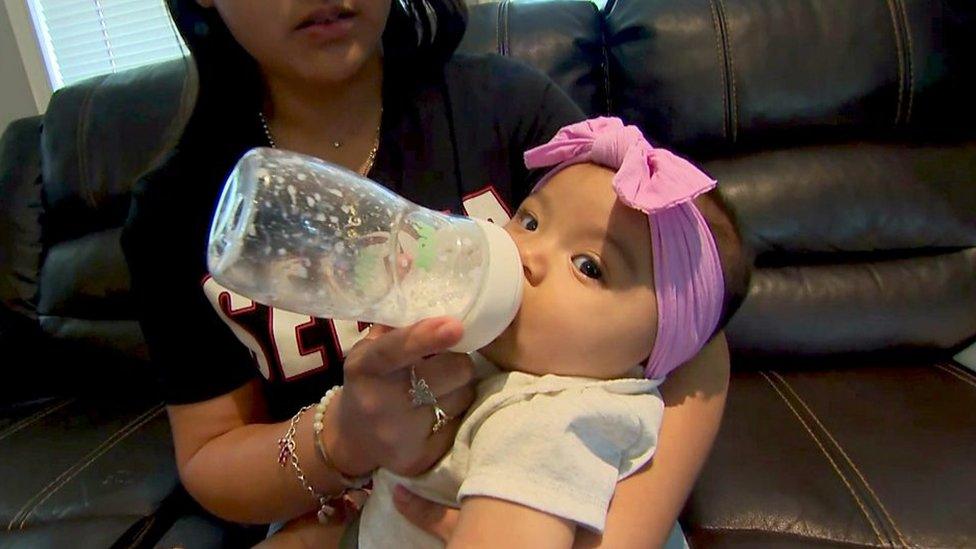Abbott: US baby formula plant linked to national shortage resumes production
- Published
Watch: Plane carrying 35 tonnes of baby formula arrives in the United States
US firm Abbott says it is restarting production at a baby formula plant after its shutdown contributed to a national shortage of the baby food.
The plant in Michigan - one of America's largest - was closed in February because of contamination.
Coupled with global supply chain issues, the factory's closure led to acute shortages.
Parents were left scrambling for supplies, seeking formula from food banks, friends and doctor's offices.
Some turned to social media to try to track down baby milk, while others attempted to make their own substitutes (against medical advice).
The facility has met initial government sanitary requirements for reopening, the company said in a statement, external.
Abbott said it would initially prioritise the production of its EleCare speciality formulas for babies with severe food allergies and digestive problems.
"We're also working hard to fulfil the steps necessary to restart production of Similac and other formulas," Abbott said, referring to its more mainstream products. It plans to ramp up production as quickly as possible "while meeting all requirements", it said.
The company said it would take about three weeks before new formula from the plant began reaching stores.
Last month, US President Joe Biden invoked the Defense Production Act, a war-time measure, to boost domestic production of formula, and ordered the Pentagon to fly in shipments from overseas.
A bill to alleviate the shortage was also overwhelmingly passed by the House of Representatives.
Other countries have supplied formula to boost supplies during the crisis.
The Abbott plant shut down in February after the death of two babies, and the company issued a product recall amid concerns over bacterial contamination.
Inspectors for the Food and Drug Administration (FDA) say they uncovered a number of anomalies at the plant, including bacterial contamination, leaks in the roof and a lack of basic hygiene.
The company says there is no conclusive evidence linking its products to infant illnesses or deaths.
- Published26 May 2022
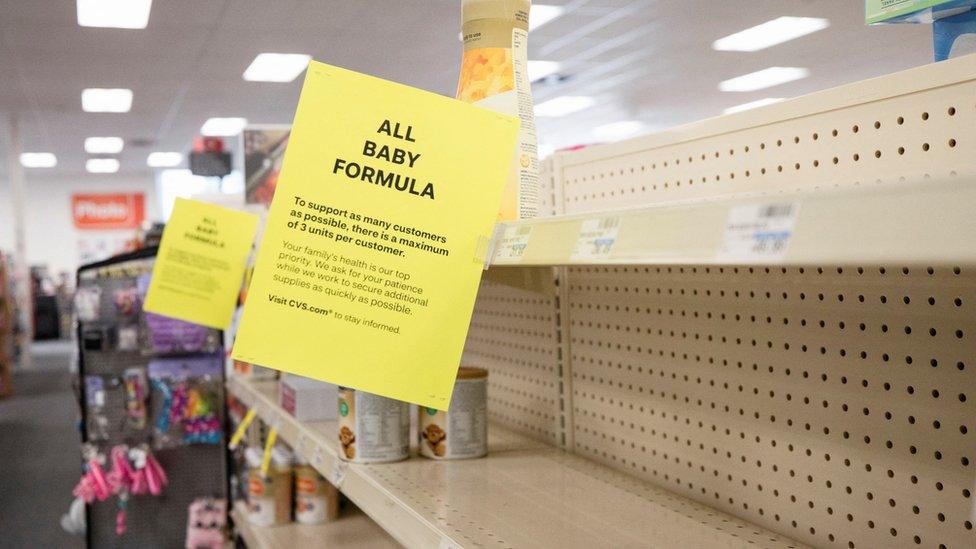
- Published22 May 2022
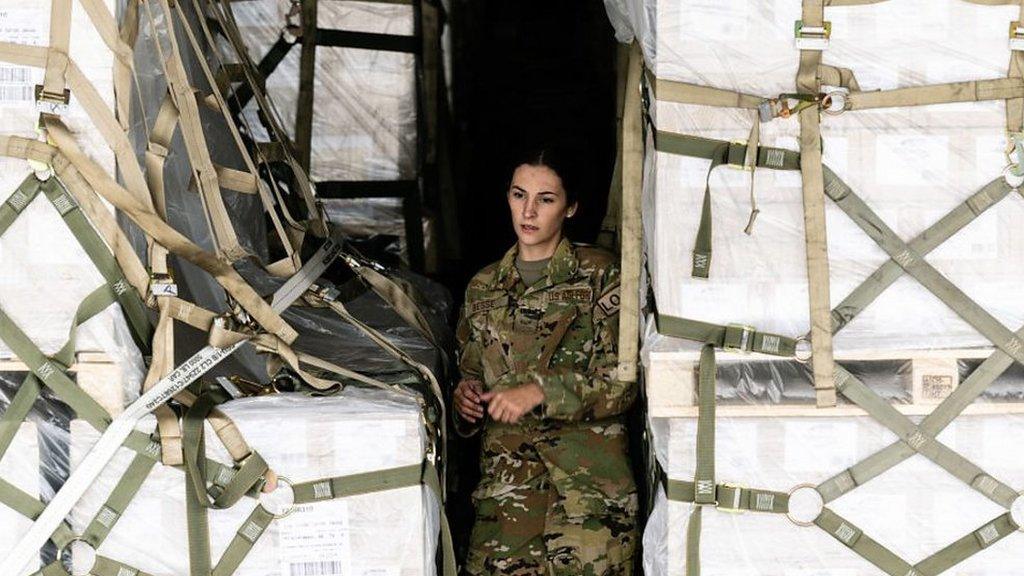
- Published21 May 2022
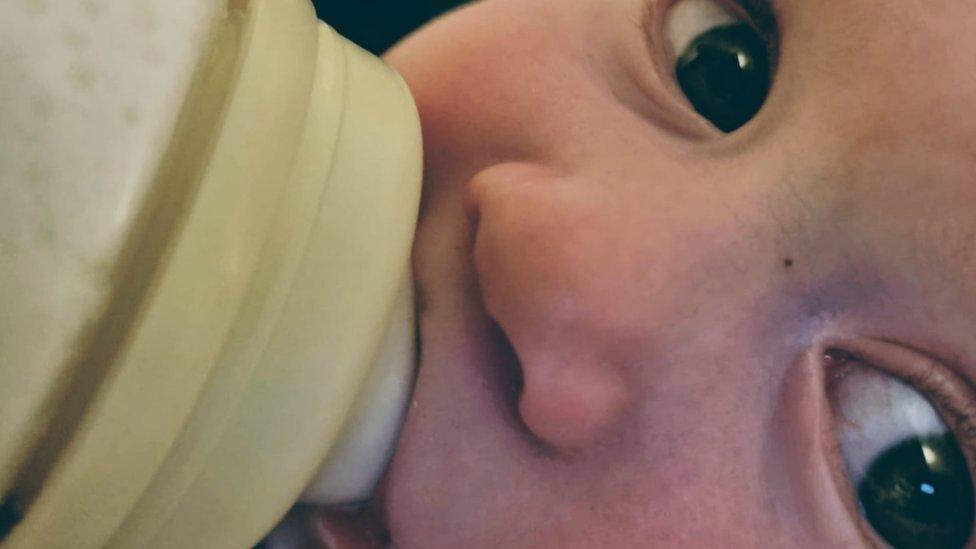
- Published19 May 2022
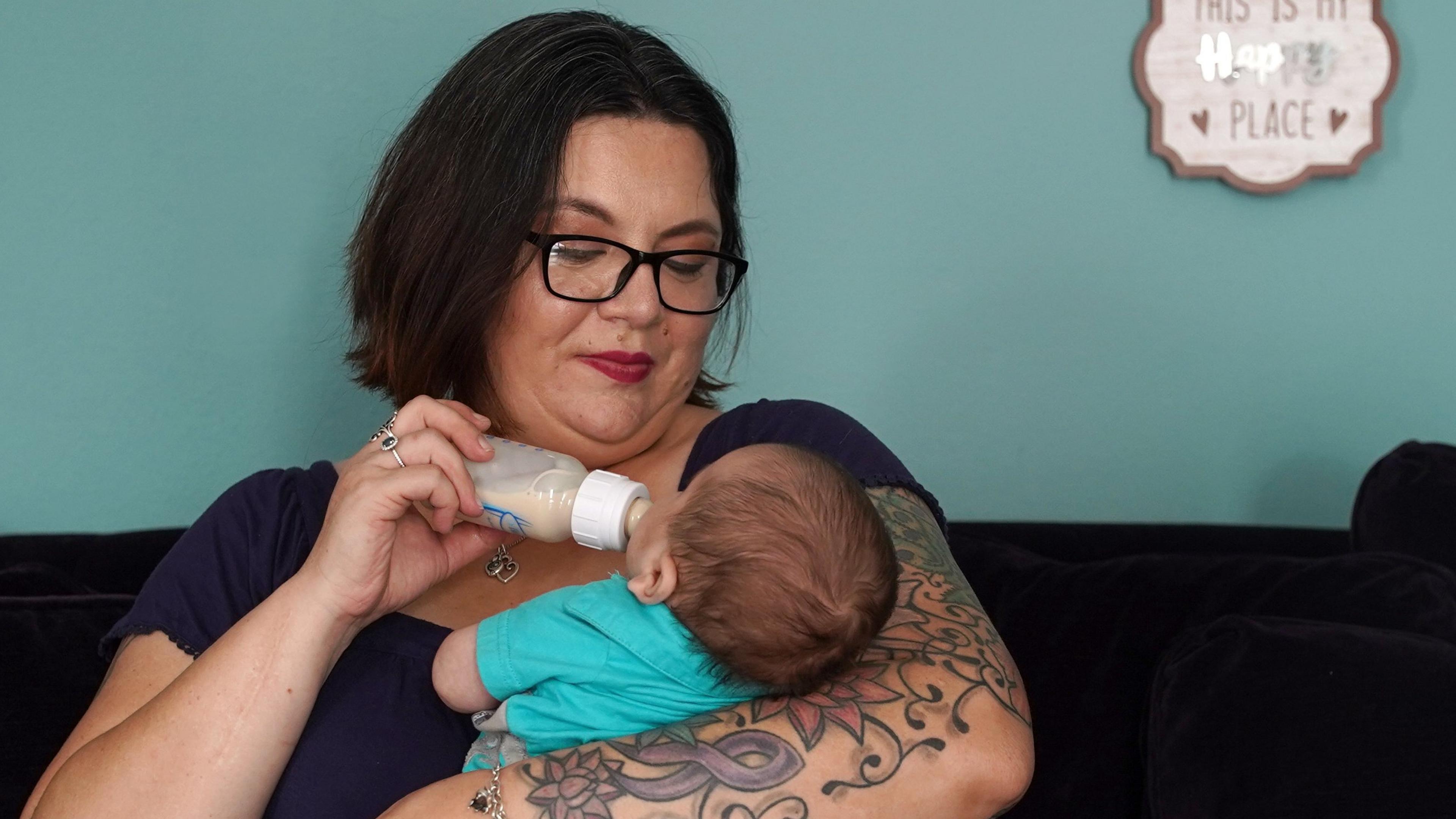
- Published13 May 2022
